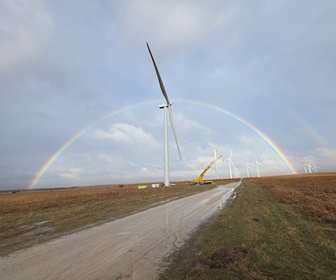The European wind industry contributed € 36 billion to the EU’s GDP in 2016, supports 263,000 jobs and generated €8bn of exports outside of Europe. These are the main findings of a new report, ‘Local Impact, Global Leadership’ carried out by Deloitte for WindEurope.
The report also outlines what the wind industry saves Europe in terms of reduced fossil fuel imports (€ 32 billion from 2011-2016) and CO₂ emissions (166 million tons of CO₂ in 2016) and what it contributes to government tax revenues (€4.9 billion in 2016).
The report shows how wind energy creates value not only for the wind industry but for the wider economy. Every €1,000 of turnover generated in the wind industry generates €250 of economic activity in other sectors such as metals, chemicals, electrical equipment and machinery, construction and engineering. Much of the industry and supply chain is located in economically less-advantaged areas. And it brings quality jobs to those areas: 82% of the 263,000 jobs are high-skilled.
Wind farms also bring direct benefits to the communities where they're located, whether through local citizens sharing the revenues through community ownership or the operators paying local taxes to the town or district authorities.
However job growth in the industry has flat-lined in the last five years as many countries have become less ambitious on renewables: half the EU Member States invested nothing in wind last year. Net exports of wind equipment are falling in the face of strong competition from emerging economies: down from €3bn in 2011 to €2.4bn today. This is due to European turbine manufacturers sourcing more components from outside Europe. The policy ambition and clarity needed to sustain wind's contribution to the European economy is currently not in place.









